Coronavirus blues: the musicians struggling to make ends meet under lockdown
euronews_icons_loading
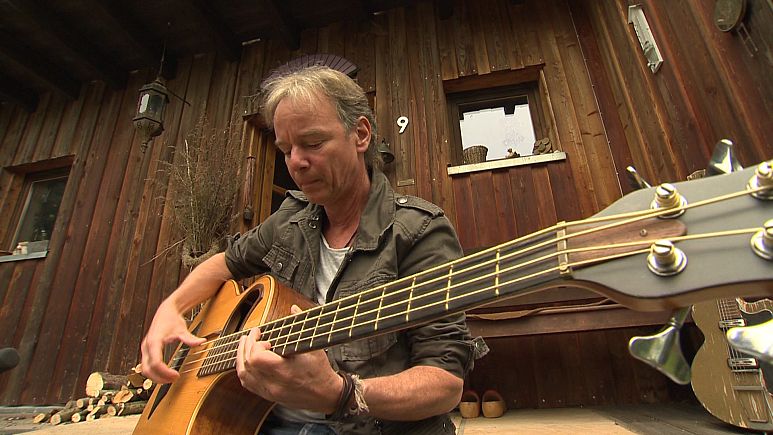
The coronavirus has wreaked havoc on the livelihoods of musicians and other artists across Europe. Social distancing restrictions have led to large events such as concerts and festivals being cancelled. Unreported Europe meets some performers to see how they are making ends meet.
Frustration in Frankfurt
Musician Willy Wagner is suffering with the blues. Living in his wood cabin near Frankfurt, like many performers, the coronavirus has severely hit the bass player’s pocket. Usually supporting the likes of Ringo Starr, The Fugees and Brian Adams, COVID-19 has turned this year’s music calendar on its head.
For Willy, no concerts, means no money. When not on tour, he teaches, but even that’s now done via What's-App.
"COVID-19 is the worst possible case scenario for independent artists like myself: our profession has suddenly stopped existing...the virus has pulled the rug out from under our feet," he says.
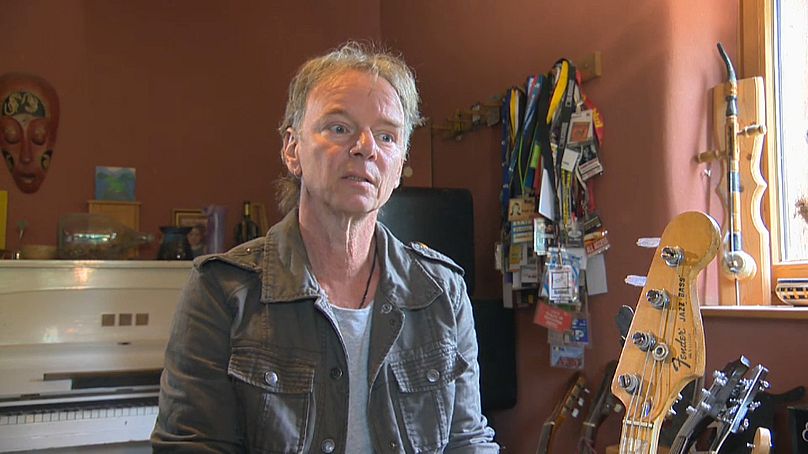
“In the next 3 months I would have earned more than 8,000 euros and there were also some really good dates coming after that - two or three smaller concert tours. But now I’m just getting 740 euros per month from the jobcentre.”
Locked down in Leipzig
Nadja Zwiener and her husband are both internationally recognised baroque musicians. If it hadn't been for COVID-19, Nadja - an expert of the so-called English Concert - would have been playing in New York’s Carnegie Hall. But since the pandemic, she has been forced to stay home in Leipzig with all her concerts cancelled. It's had a devastating impact on her income.
“In total we’ve both lost around 35,000 euro (due to COVID-19)... Right now, it means we’re living mostly on the money we’ve put aside for our retirement. My British colleagues (in the UK) can claim 80 percent of their average income, calculated over the last three years. A kind of short-term allowance. I think this is a much better solution than the German unemployment benefits system, which I consider to be an absolutely patronising and bureaucratic instrument."
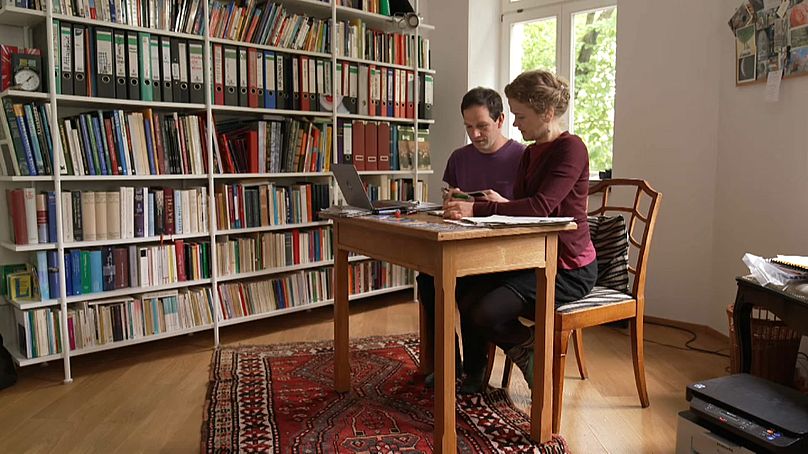
Budapest cancels Sziget
In Budapest the city’s Sziget Festival is one of Europe’s biggest. In 2019, it attracted over half a million visitors. But this year, for the first time in more than a quarter of a century, the fields where the concert takes place will be empty. Any event of 500 people or more is banned in Hungary until mid-August. It means more than 10,000 technicians and artists are out of work.
“It’s a very difficult situation for all the concert and festival organisers, given that they do not have any cash flow or income. For example, they’re having to repay the price of tickets bought in advance. The problems they’re facing are unprecedented,” says Tamás Kádár, CEO, Sziget Festival Manager.
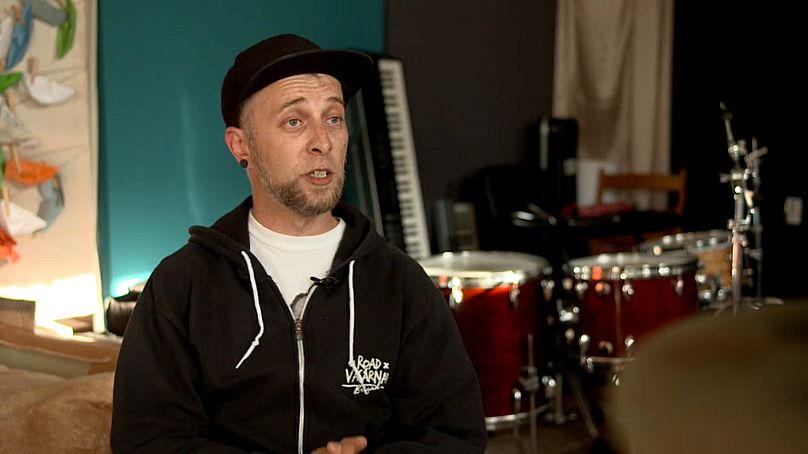
István is a sound engineer during Sziget. But just like other backstage technicians, the cancellation of the festival has left him without that work. To make ends meet, he has found a temporary job at a supermarket. István's also launched a crowdfunding campaign to help other roadies working in the sector. In just one week, the page raised five million Forints - around 14,000 euros
“The fundraising is for people – I know some of them – who have had to stay at home with their children because the schools are closed and only their partners have a part-time job. There are people who have loans, but cannot pay them back, because they cannot work at the moment,” István says.
"Left out in the rain"
Our last port of call is Nuremberg in southern Germany. Gerd Grashauße, who goes by his stage name Geraldino, is a jack-of-all-trades: creating art-objects from toys is just his latest idea. First and foremost, however, he is a singer-songwriter, composing pop music for children. Following the concert ban across Germany he insists that he has not had enough to make ends meet. Furious at the government, he argues that they have not done enough to support freelance artists like himself.
"The car industry, Adidas, Puma, the airlines get huge support (from the government). But ordinary people that no longer have any income are left out in the rain... In my opinion this is outrageous... It's unfair towards us, the small, independent artists. It’s unacceptable," says Geraldino.
Bavaria recently launched an emergency support scheme for independent artists. Despite that, Geraldino says the 1000 euros a month he is receiving is not enough.
“We had 100 performances booked this year and already 40 of those are cancelled - and there is nothing at all in the pipeline for 2021," he says.
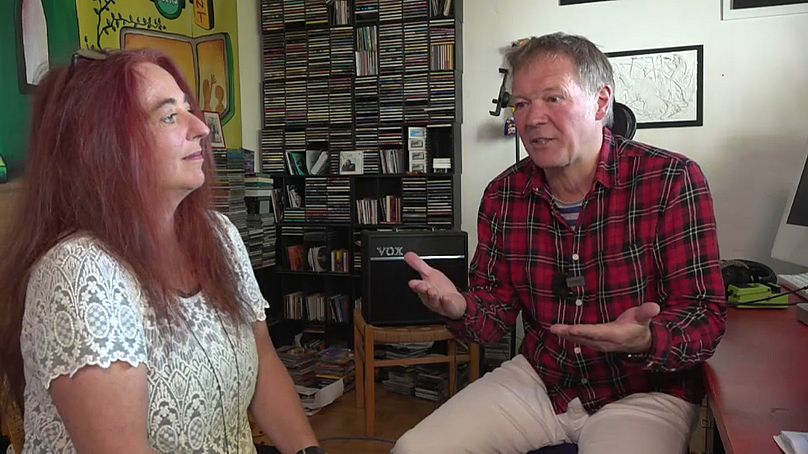
Claudia Martin, a colleague agrees: "Nobody knows, how this epidemic will develop. The politicians can not say, if we will get the green light to begin performing again 100 percent by September, nobody can say," adding: "As long as performances are restricted, we should be entitled to some sort of allowance, at least 60 percent of our usual income."
Since the pandemic hit Germany, Geraldino has scaled things back: instead of regularly playing to some 3000 cheering children, he is now just singing in his neighbourhood.
Geraldino sums up by saying: "I am pleading to the politicians: just give us a chance, give us some outlook for the future - don't let us die of thirst.”